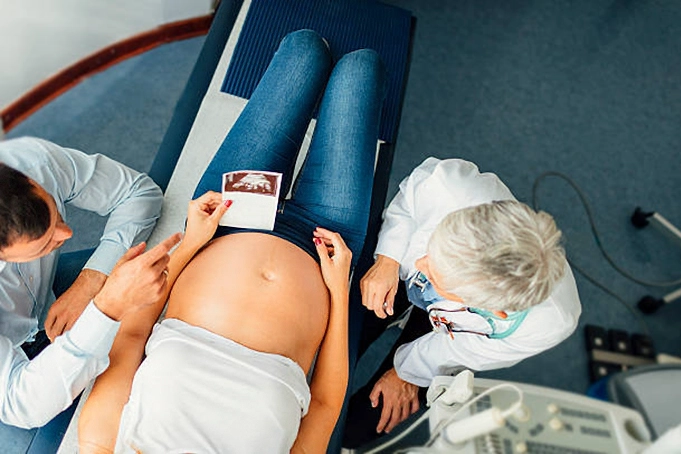
Written by David Lombardino | Updated March 17, 2024
Thinking About Getting Pregnant?
Every year, in my role as a medical residency consultant, I get asked about getting pregnant–and more specifically giving birth–while in residency. Should you do it? Is there a better time to do so than another?
What if you're pregnant before getting matched with a due date just before or just after the start of residency? Will they cancel your contract?
"When" Is a Personal Choice
While you may prefer to wait until after finishing residency to start your family, for many, this is not a better–or even available–choice. For example, depending on your career path, you may prefer to start your family in residency, knowing that in your first few years after residency, you will be wanting to focus on establishing your career, and working hard in doing so.
You may also be an older resident, particularly if you are an international medical graduate or someone pursuing a career in medicine after first starting a career in another field. In this case, you may want to start your family soon, before reaching an advanced maternal age and for the health of your baby.
|
These are just a couple of examples of when it may be better for your personal circumstances to start your family while in residency. |
What Is the Best Time to Give Birth During Residency?
While your personal circumstances may leave you with less flexibility, there are certain times when it would be better than others to give birth during residency. Of course, one way to make this choice is according to your program's curriculum. Is there a year with a lighter schedule than the others?
Of additional consideration is to avoid the start of the program year, if possible, when the new class of interns starts, and if you are an intern, to aim to give birth in the second half of the intern year rather than the first half. While the first half is certainly doable, usually the first few months are rather stressful and challenging as you get used to the rigors of residency.
Something else to consider is your program's requirements for taking Step 3, or maybe your own personal requirements to take it by a certain time if you are coming up against the 7-year rule.
If you will be taking Step 3 in residency, you may prefer to aim to give birth after your test date, and if you are of advanced maternal age or otherwise at risk for complications during pregnancy, you may wish to aim to give birth 3 months or more after your Step 3 date.
|
If there is one particular time I would recommend avoiding above all others, it is the start of your intern year. There will be a lot to learn especially in the first few weeks to get acclimated to residency. |
For any situation in which you need to delay starting residency or otherwise take time off right at the start of residency, you are likely to feel like you are trying to catch up for some time after.
If it is important to you to be able to give birth around the start of residency, can you plan your pregnancy to be able to do so at least 8 weeks before starting your intern year? Or can you wait so you can give birth in the second half of your intern year?

Will Having a Due Date at the Start of Residency Cause Me to Lose My Position?
Specifically, one question I get just after Match week is: "I am pregnant with a due date on or after the start of residency, and just matched. Should I let the program know? Will this cancel my match, or will they revoke their commitment to train me?"
To answer these questions, let us first start with the binding commitment created bilaterally between the candidate and the program via the NRMP.
Accordingly, the candidate and program are equally committed to pursuing the training unless if "honoring the commitment would result in unanticipated serious and extreme hardship." In such cases, the program must request a waiver, which is not easy to obtain, and which they wouldn't be able to obtain just because someone is pregnant.
It is important to keep in mind the serious consequences for a program not continuing with their commitment. Further, once you have signed the contract to start residency, in addition to the NRMP rules, U.S. employment laws come into effect.
|
According to U.S. employment law, it is illegal to fire someone because they become pregnant, or give birth, while under an employment contract. |
How Will a Program React if I Give Birth During Residency?
Becoming pregnant and giving birth during residency is a perfectly normal occurrence, and there are a variety of ways programs can accommodate this. The best approach to take is to be up front and open with them, including if any complications occur, along the way.
If you prefer to wait until after the first trimester for personal reasons, that is okay and perfectly understandable. Just make sure you tell them soon after your second trimester starts.
|
Being in open communication allows for the program to make any adjustments to the rotation schedule that would make it easier on the program for when you take time off. |
How Will They Organize My Time off?
Regarding your time off, there are a few considerations, which include how your prepartum and postpartum go.
First, you will likely be required to use all of your vacation plus sick time for any days you take off. This will give you in the neighborhood of 3 to 4 weeks. If extenuating circumstances occur, such as complications, including post-partum depression, the most important thing to do is for you to be in open communication with the program. As long as you do that, they are legally obliged to be accommodating of your circumstances.
There are a few options for this. In addition to shifting the rotation schedule, for extended leaves of absence, there is the Family and Medical Leave Act (FMLA), for example.

How Will Taking Time Affect My Record With the ACGME?
Regarding the ACGME, this is not something you should worry about. To begin with, no matter the specialty you are training in, you do not need to complete all the weeks of the program to meet the ACGME requirements for graduation. There is flexibility even beyond time taken off for vacation and sick leave.
|
If for health reasons surrounding your pregnancy you do need to take time off that extends beyond this limit, there are still accommodations programs can/will make to ensure your successful completion of the training. |
If the extension is on the shorter side, they will simply add the extra time to the end of your training. So, for example, instead of finishing at the end of June in PGY-3 (for a 3-year program), you may be extended to the end of August. You are still under your contract, with salary and benefits and with no adverse effect due to the extension, with two caveats.
The first caveat is that when looking for your first job after residency, they may ask why you finished late, which you can answer with the truth without going into any detail, which would address their concern.
The second caveat is if you wish to pursue fellowship after residency. You may find that you need to delay your application for a year so that you can start on cycle.
In cases of longer periods of time off (e.g., 6 months), what programs may decide to do instead of extending the end of your training is simply have you restart the PGY starting the next July 1. These types of accommodations are organized in collaboration between the program leadership and the GME office.
Final Thoughts?
As long as you are in open communication and work together with the residency to find solutions for any issues that come up during training, the program is at least legally required if not also willing to work together with you to ensure the successful completion of training.
If you have more specific questions related to your personal situation, feel free to email me, and I will be happy to provide further guidance.


